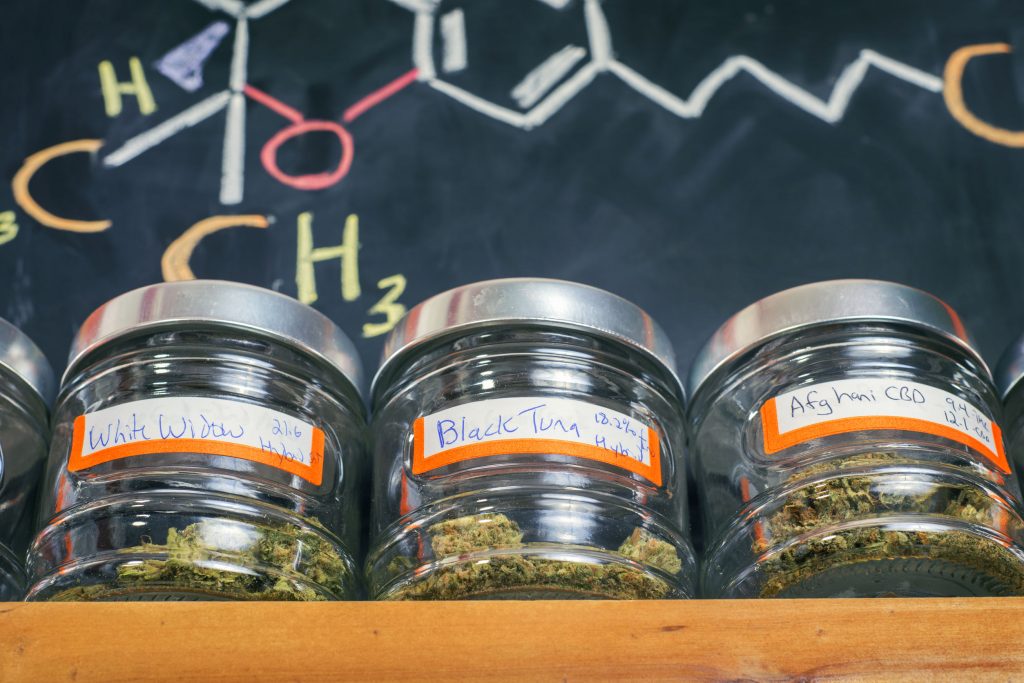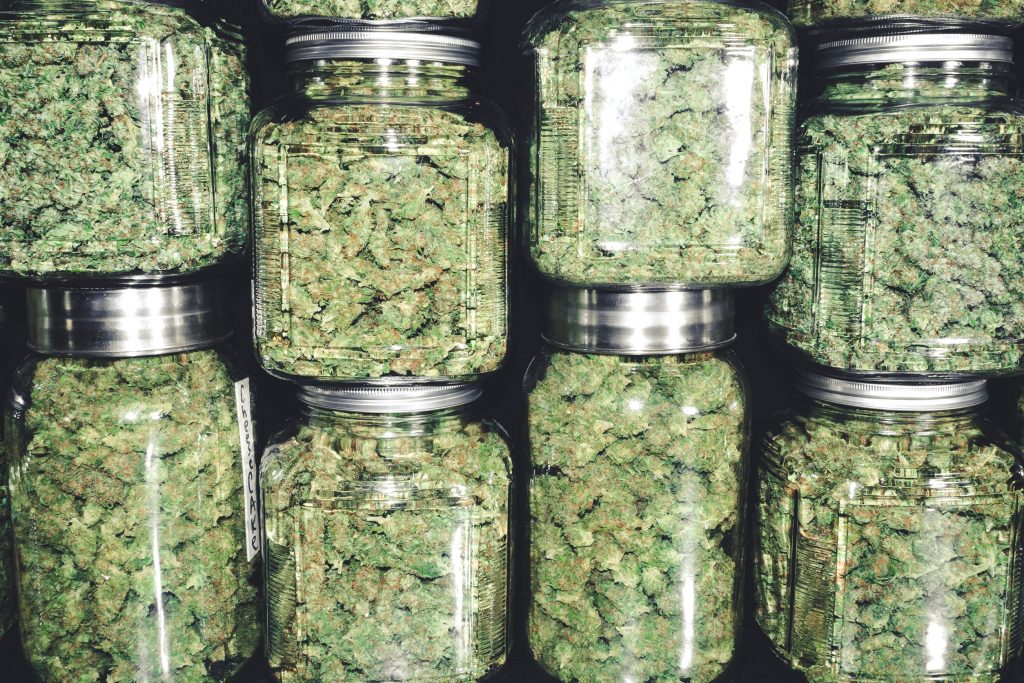Category: cannabis reform
What’s New for America’s Most Popular Cannabis States?
2019 has been the year of the cannabis plant in the United States. New states have joined the recreational cannabis club, young medical programs are exploding, mature ones are diversifying, and the Northeast is inching along. Here is the latest on the nation’s most popular cannabis states.

Colorado’s Cannabis Program Adds Versatility
Changes are coming to Colorado’s medical and recreational cannabis programs. House Bill 1230 will allow legal social consumption at businesses like dispensaries, restaurants, hotels, and music venues. Home-delivery of medical cannabis can begin in 2020, followed by recreational in 2021 thanks to the passage of House Bill 1234. In response to the state’s opioid epidemic, Governor Jared Polis signed the MMJ for Opioids Bill, which allows doctors to recommend medical cannabis as an alternative to opioid medications. The medical program also added autism to its list of qualifying conditions. Finally, House Bill 1090 opens Colorado’s cannabis industry to out-of-state investors and capital, including publicly held companies and large venture funds. Per Westword, “The bill would also permit investors to own smaller stakes (less than 10 percent) in a cannabis business.”
Illinois Hits a Snag
According to the Illinois Regulation and Tax Act, the state’s 55 existing medical dispensaries would have first dibs at applying for a recreational sales license at the same site, plus a second license for one at a different location. However, recently, The Illinois Department of Financial & Professional Regulation, the agency in charge of issuing those initial recreational-use licenses, announced a different interpretation: “…if a medical dispensary wishes to relocate for any reason — whether it’s for more space or if a home municipality bans recreational sales — it forfeits its right to also sell recreational marijuana,” per the Chicago Tribune.
This has created chaos for companies like Green Thumb Industries (GTI), which was awarded a retail license by the state in its Naperville location before the city council opted out of the program. “Naperville’s 6-3 vote on Tuesday, September 3 (2019) marks one of the first major roadblocks for Illinois’ marijuana industry as it prepares for recreational sales next year,” the Chicago Tribune added. “Whether GTI, or any other company, can open a store for recreational marijuana, could be reconsidered by the council after a potential non-binding voter referendum.”
Other municipalities in Chicagoland to ban recreational stores include Bolingbrook and Wheaton.
Oklahoma Medical Cannabis is Soaring
Previously, we wrote about the launch of Oklahoma’s medical program, and nothing is halting its trajectory toward a projected value of $250 million per year by 2025.
As of August, 2019, there are 162,273 registered medical cardholders, a number that’s been growing by up to 10,000 per month for the last year. To put those numbers in perspective, that’s 4 percent of the state’s total population.

There’s a pretty easy explanation for this success: patients don’t have to meet qualifying conditions, and instead only need a referral from a physician. There are also no caps on dispensary licenses, which is why the current number is over 1,700. Additionally, the barrier to entry is low. According to the Arkansas Times, “The license to grow on a commercial scale or open a dispensary in Oklahoma is a flat $2,500 and a fare thee well, open to any Oklahoma resident who hasn’t had a felony in the past five years. Their law allows cardholders to possess up to a half pound of marijuana, and grow up to six plants at a time. Their law also made possession of up to 1.5 ounces by non-cardholders a misdemeanor punishable by a maximum $400 fine.”
Additionally, High Times Magazine put Oklahoma’s cannabis culture on the map when it held its renown Cannabis Cups in Oklahoma City in August.
Massachusetts Social Equity
As more recreational cannabis businesses come online in Massachusetts, the push for social equity is taking center stage. Real Action for Cannabis Equity (RACE) started in Boston in September, 2019 to address the dearth of minority-owned operators. Per Marijuana Business Daily, “Organizers say they’re frustrated that all but two of Massachusetts’ 184 marijuana business licenses were issued to white operators…black entrepreneurs in Massachusetts who say people of color are being shut out of the lucrative marijuana industry are joining forces to close the gap.”
New York Decriminalizes Cannabis
Though New York state failed to pass recreational cannabis during the 2019 legislative session, a last-minute compromise was reached on decriminalization. According to The New York Times,”Under the new law, possessing between one and two ounces of marijuana will no longer be considered a Class B misdemeanor. It will now be a violation, with fines up to $200. Those found with less than an ounce of marijuana will now face a $50 fine, compared with $150 previously.” In addition approximately 160,000 people will have cannabis convictions expunged from their records.
New Jersey Still has a Chance to Pass Recreational Cannabis
The Garden State saga to legalize recreational cannabis is back on. The state Legislature came up short on votes to pass a new law earlier in 2019, but the law-making body isn’t giving up, envisioning two scenarios:
- Holding another vote for the bill during the lame duck session at the end of 2019 or the first half of 2020
- Putting it on the ballot for the November, 2020 election
Governor Phil Murphy has voiced his preference of passing recreational cannabis through the Legislature versus relying on the ballot box. According to NJ.com, “Such a move would allow leaders to more easily mold and regulate the new marijuana industry. And waiting until next year’s elections means you likely won’t be able to consume weed legally in New Jersey until early 2021, at the earliest.”
Federal Cannabis Legislation: What You Need to Know
It seems commonplace that among the main news stories of the day, is a proposed federal congressional bill addressing cannabis reform. There are at least 10 right now with the most promising ones featuring bipartisan support. “Marijuana decriminalization may be one of the very few issues upon which bipartisan agreement can still be reached in this session,” said Rep. Tom McClintock (R-CA), adding “it ought to be crystal clear to everyone that our laws have not accomplished their goals.”
The two main strategies to end cannabis prohibition in the U.S. involve either legalizing at the federal level or creating immunity for states that pass their own legalization laws.

SAFE Banking Act
The SAFE Banking Act (H.R. 1595) would allow banks to work with the cannabis industry in legal states. This bill is unique because it has bipartisan support and it’s being moved along via committee hearing by Senate Banking Committee Chair Sen. Mike Crapo (R-ID) whose home state completely outlaws cannabis. Once opposed to any hearings due to the federal illegality of cannabis, Sen. Crapo has reconsidered. “We now need to, I think, move forward and see if there’s some way we can draft legislation that will deal with the issue,” said Crapo, according to Leafly News.
“Senator Crapo’s willingness to hold a hearing recently on the SAFE Banking Act was very encouraging,” Michael Correia, director of government relations for the National Cannabis Industry Association, told Marijuana Moment. “We’re thrilled to learn that he is open to solving this important issue and we are looking forward to working with the senator,” he added.
The STATES Act
Strengthening the Tenth Amendment Through Entrusting States, or The STATES Act (S. 3032), sponsored by Sen. Elizabeth Warren (D-MA), would amend the Controlled Substances Act and exempts state-approved marijuana activity from federal enforcement. In other words, states with a medical, adult use, or combined program could operate without ever fearing federal interference. The bill was first introduced in 2018 and reintroduced in 2019 with Sen. Cory Gardner (R-CO) signing on as a co-sponsor. The STATES Act was in response to the rescindment of the Cole memo, which President Obama created to protect legal cannabis state from federal interference.
However, there are those who believe the bill stops short of addressing racial and social matters. “We need to reinvest in those individuals and those communities that have been disproportionately impacted [by marijuana prohibition],” Baltimore State’s Attorney Marilyn Mosby, said. “The STATES Act does not do that, and that’s one of the reasons why I’m opposed to it.”
The two main strategies to end cannabis prohibition in the U.S. involve either legalizing at the federal level or creating immunity for states that pass their own legalization laws.
The MORE Act
The Marijuana Opportunity Reinvestment and Expungement Act, or The MORE Act, co-sponsored by House Judiciary Committee Chairman Jerry Nadler (D-NY) and Sen. Kamala Harris (D-CA), assuages those concerns. Considered the most comprehensive cannabis bill yet, it takes a three-pronged approach that addresses descheduling, state-control, and racial and social justice. If passed, the bill would remove cannabis from the Controlled Substances Act, allow states to write their own policies, and require cannabis convictions to be expunged or resentenced.
It creates further protections from the federal government, including prohibiting federal agencies from denying benefits to people found using marijuana and preventing immigrants from being deported for a cannabis-related conviction. The bill also sets up a 5 percent cannabis tax to establish grants for minorities and low-income communities.
“Racially motivated enforcement of marijuana laws has disproportionately impacted communities of color,” Nadler said in a statement. “It’s past time to right this wrong nationwide and work to view marijuana use as an issue of personal choice and public health, not criminal behavior.”
Amendment to H.R. 3055
This one is perhaps the most significant because it’s an Amendment that passed in the House of Representatives and is attached to an appropriations bill to fund parts of the federal government for fiscal year 2020. Specifically, the Amendment prevents the Department of Justice from interfering with state cannabis laws–covering D.C. and U.S. territories–including those allowing recreational use, cultivation and sales. It was approved by a floor vote of 267-165 with bipartisan support and is sponsored by Reps. Earl Blumenauer (D-OR), Eleanor Holmes Norton (D-DC), and Tom McClintock (R-CA).
“This is the most significant vote on marijuana reform policy that the House of Representatives has ever taken,” said NORML Political Director Justin Strekal. “Today’s action by Congress highlights the growing power of the marijuana law reform movement and the increasing awareness by political leaders that the policy of prohibition and criminalization has failed.”
Conclusion
Each of these pieces of proposed legislation come with “even if” or “even though” caveats. For example, even if the MORE Act were to pass the House, it would have a tougher time in the Senate. Even though the House approved the amendment that prevents the Department of Justice from interfering with state cannabis laws, will it achieve passage in the Senate and Senate Majority Leader Mitch McConnell (R-KY), who, though a champion of legalizing hemp, is opposed to cannabis? Still, the historic amount of cannabis bills and resolutions being drafted and considered by both chambers speaks to progress of cannabis legislation.


